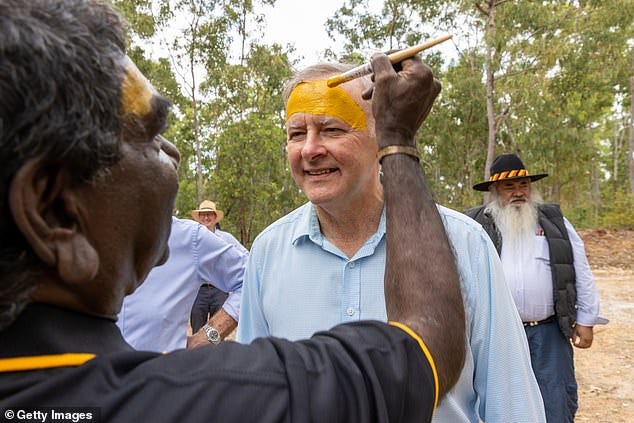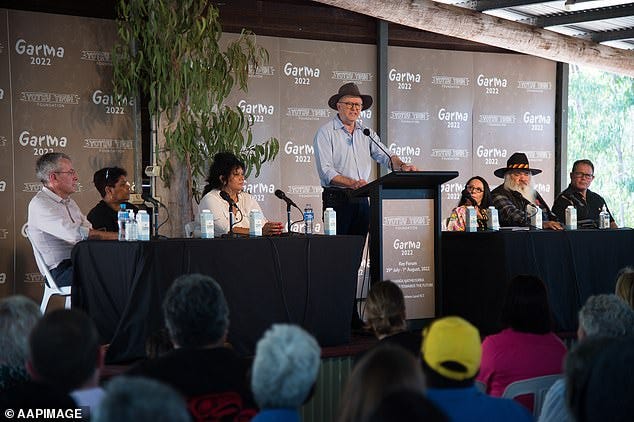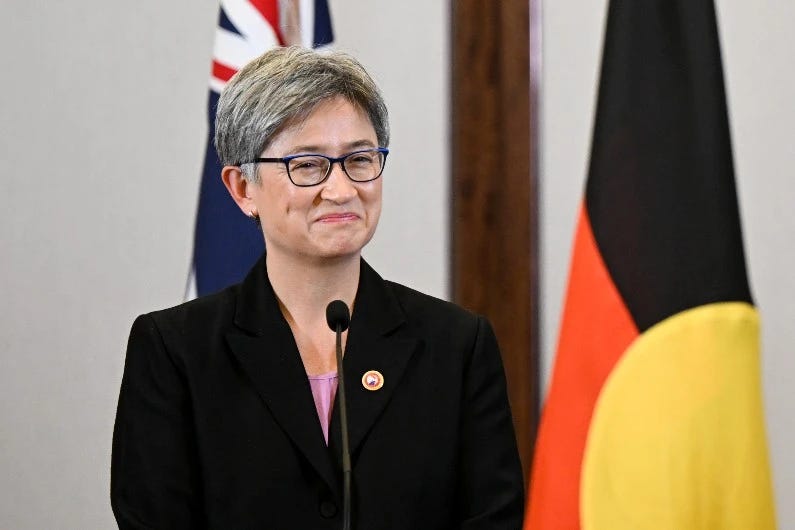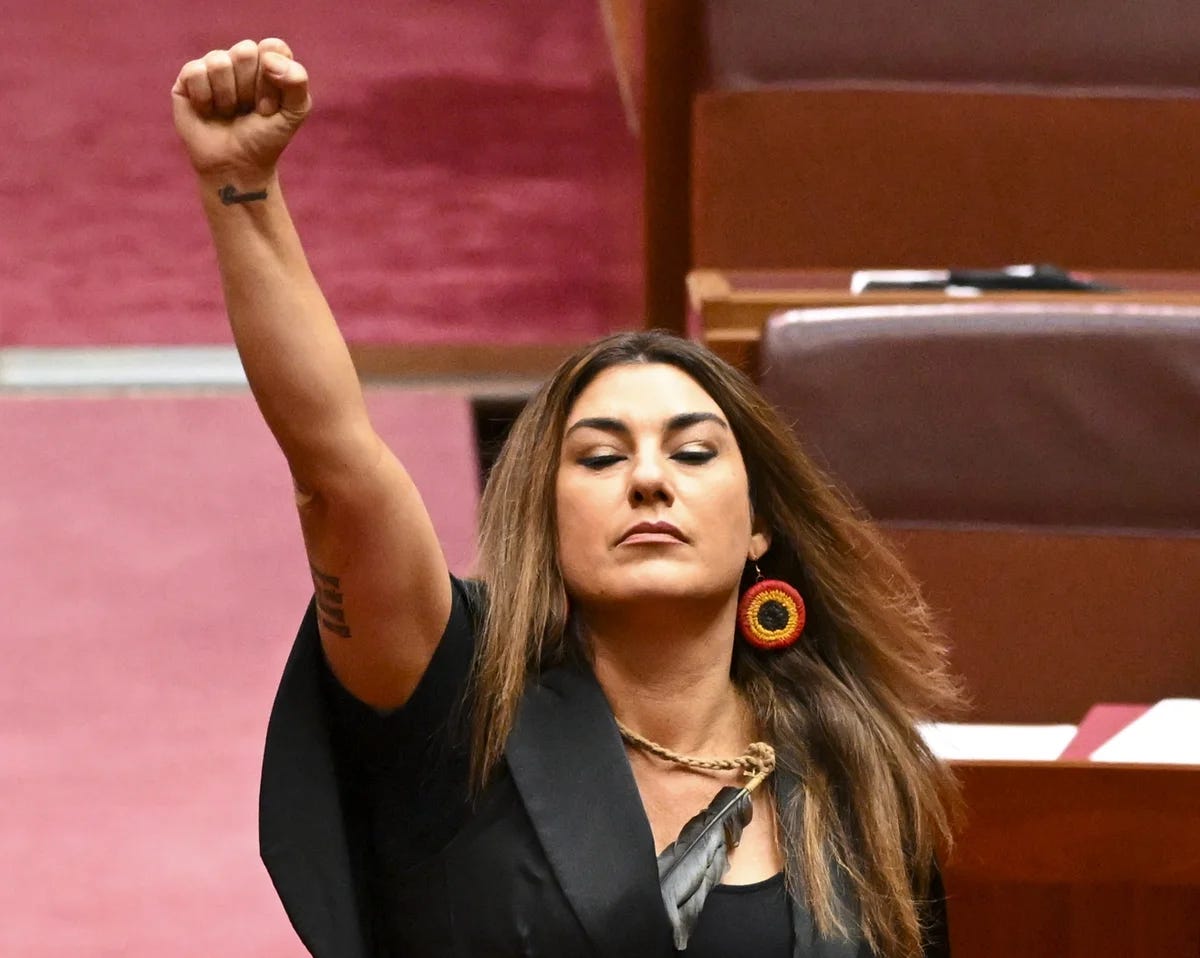The 'Voice' is a Step Backwards
Disadvantage needs to be addressed. This is not the way to do it.
The Australian government wants to create a new body within the constitution called the "Voice". When I asked if I will be part of it, they replied that it will depend on who my ancestors were.
That is not a step forward.
I agree that disadvantage in Indigenous communities needs to be addressed. But creating an Aboriginal and Torres Strait Islander voice in the Constitution is not the way to do it.
The Uluru Statement from the Heart calls for a response from the head, and the response should be “no”.
The Prime Minister appealed almost entirely to sentiment when arguing for constitutional change last week. His case for voting “yes” when the idea is put to a referendum was vague, emotional, and shame based.
He insisted that changing the constitution was a good thing to do; a courteous thing to do; a generous thing to do.
Well, it’s also the wrong thing to do.
What Mr Albanese has set out to achieve does not need a constitutional amendment.
Mr Albanese told Indigenous leaders at a festival in the Northern Territory …
'It's about consulting Aboriginal and Torres Strait Islander peoples on the decisions that affect you. Nothing more, but nothing less.’
Since when was a change to the Constitution required for politicians to consult people?
If the Prime Minister believes his government needs to listen more to Indigenous people, he can begin listening this afternoon. Nothing is stopping him, certainly not the Constitution.
So why is Mr Albanese asking to enshrine a lobby group in the Constitution?
The idea of an Indigenous Voice to Parliament is inherently divisive.
Mr Albanese said …
'It's not a matter of special treatment, or preferential power.’
But the Voice proposal is everything Mr Albanese says it isn’t, and nothing that he says it is.
Changing the Constitution to give one ethnic group a special voice on government decision making - a voice the majority of Australians will not enjoy because they lack the requisite genealogy - sounds a lot like special treatment.
The same people who insisted the national anthem needed to be changed to say that we are “one and free” now want to make us into two by inserting race into the Constitution.
And does anyone really believe this Voice will have no power?
The case for a yes vote was immediately framed as a moral decision rather than a practical one.
If those proposing to vote against an indigenous “Voice” are already being cast as racist, then those who dare to ignore the Voice once it is established can expect the same.
Of course the Voice will have no power, other than the power to ruin political reputations and careers if it is ignored! And in a world where racism is the worst sin and cancel culture is the go-to remedy, that’s a lot of power.
Foreign Minister Penny Wong has said she wants to incorporate “First Nations perspective into our international relations”. Will the Indigenous Voice guide the nation’s approach to Taiwan, to trade deals with Europe, to climate policy?
The ABC’s Indigenous Affairs editor Bridget Brennan went on TV and said the quiet part out loud …
When we imagine what a Voice would look like I think it does need to have teeth, it does need to be feared and revered, it needs to be a building, it needs to be an institution that has much more than a voice. It has to have some control and some autonomy. We need to imagine that this body has much more than just an advisory role.
The past decade has taught us that when political elites tell you what they are going to do, you should listen.
How exactly is the collective “Voice” of Indigenous people to be derived anyway? We are told there will be local voices that report to regional voices that report to a national voice that then speaks to Parliament on behalf of all Indigenous people.
Who exactly comprise all these voices? How are they chosen (apart from by ancestry, of course)? And what happens when the Indigenous Voice is at odds with elected representatives of the people who also happen to be Indigenous?
Once you get beyond the misty-eyed sentimentality, it’s difficult to see the Voice as anything other than just another protected government body with no accountability, filled with rent seekers and activists.
It’s called the “Voice” because ATSIC 2.0 would be impossible to sell, even to a public that has been trained to think with its feelings.
Of course, the Prime Minister promises that the Voice will work wonderfully well and that all the details will be finalised after we vote “yes” which is a bit like asking Australians to buy something off the plan, without allowing them to see the plan.
And this from the same political elites who told us to trust them with “two weeks to flatten the curve”!
Mr Albanese says the Voice is necessary to end disadvantage in Aboriginal communities, but what he cannot say is how.
His fine words are first-rate virtue signalling. But none of what he proposes will make lives, faced with domestic violence, alcohol abuse, lack of opportunity and constant interference in education any different.
The Voice is meant to end disadvantage, but once enshrined in the Constitution the Voice is forever. So do proponents not expect Indigenous disadvantage to ever end? How does that make sense?
Mr Albanese says the Voice is necessary for reconciliation.
Reconciliation requires two parties to be involved and it seems to me that the Indigenous side has been against reconciliation. Forgive me if that sounds harsh, but how else are we to interpret the behaviour of prominent Indigenous MPs like Lidia Thorpe who made black power gestures in Federal Parliament just this month, and called the Queen a colonizer even as she was swearing allegiance?
If Ms Thorpe is a maverick, then you would expect elders past, present and emerging to publicly rebuke her. But, with the notable exceptions of Jacinta Price and Warren Mundine, no-one does.
There are so many holes in the Voice proposal that it shows just how far we have fallen intellectually to even consider such nonsense.
How about all Australians just be Australians? No discrimination and no race-based organisations - feeding off the government teat - whose sole purpose is to entrench division.
If we are serious about addressing Indigenous advantage, the elimination of perpetual victim status would be a good starting point. But I fear too many lucrative careers depend on that never happening.





Spot on James. The voice is just the latest tool of cultural Marxists to destroy our democracy. We must wake up to this.
Such logic is very difficult to find in today's society. what happened to ' We are one, but we are many'? Coming from Italian heritage, I'm inclined to begin lobbying for an immigrant's voice to parliament and making a 'Statement from the Stomach' - you have to admit we did heighten the culinary landscape here.... If you dont' have a sense of humour you are likely to go mad in this country!